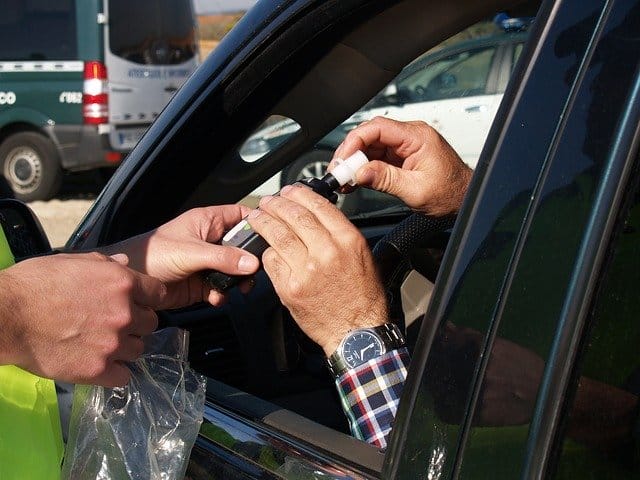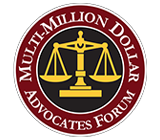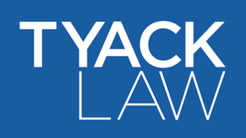
How Does a Breathalyzer Work?
A breathalyzer is a device used by law enforcement to check the alcohol content in a person’s system. These devices can give seemingly failproof information, but they are not perfect. Most often these are used during sobriety tests to ensure that drivers on the road are not under the influence of alcohol. This technology is inserted into the mouth of a person and reads the air they exhale. Reading on a breathalyzer test determines if the person’s B.A.C. is within the legal limit or not, which can then be used in D.U.I. cases. While this method tends to be highly effective, there are cases when it may not be.
What Does a Positive Reading Mean?
If you’re given a breathalyzer test and it reads that you are over the legal limit, it is likely that there is a high level of alcohol in your body. Today, technology in these devices produces an accurate reading. However, there are some instances where you may find yourself with a false positive breathalyzer.
What Can Cause a False Positive Breathalyzer?
Several factors can cause a false positive breathalyzer test. These include:
- Calibration of the equipment
- Medical conditions
- Time the test is given in relation to drinking
- Contamination
Equipment Calibration
Like other technology, breathalyzers must be calibrated frequently to ensure they are working properly. If a test is administered without proper calibration, it can cause a false positive breathalyzer. For law enforcement to know they are getting the most accurate reading, the device must be set at specific settings and kept that way.
Medical Conditions
Medical conditions and medications that create acid in the stomach and esophagus could result in a false positive breathalyzer. That’s because they increase the BAC levels in the blood and may leave some presence of alcohol in the mouth.
Time of Test
If a breathalyzer is administered at a certain point when the alcohol is being absorbed, it can cause a false positive. This is because the blood alcohol content may rise and then fall after being consumed and it may appear that a person is over the legal limit even though their actual blood alcohol content may be below.
Contamination
Breathalyzer tests could easily be contaminated by outside factors, like the device not being cleaned properly or chemicals in the air. Any of these factors can cause the reading to be a false positive breathalyzer result.
What Besides Alcohol Can Set Off a Breathalyzer?
“Can you fail a breathalyzer without drinking?” and “Can a breathalyzer be wrong?” are common questions that people had, and the answers require a more thorough explanation and understanding of how breathalyzers work. Because in a number of circumstances, a breathalyzer may not paint an accurate picture of what a person has been doing.
Breathalyzers were designed to detect the blood alcohol content of a person, and technology has advanced to make these devices more accurate than ever. However, some factors in the body that aren’t alcohol can result in a positive reading. Some things that can make you fail a breathalyzer besides alcohol include:
- Medications
- Acetone
- Certain Foods
- Mouthwash
Medications
As we stated before, medications that create an excess of acid in the body can result in a false positive breathalyzer result. Couch medicines, for example, often use alcohol as a foundational ingredient, but these usually are in small enough doses that they alone won’t be in a high enough concentration to cause a false positive, but the residue in the mouth may skew the results when you use a breathalyzer test.
Acetone
Acetone is in the breath of every person, and sometimes these levels may be high enough to cause a false positive reading on a breathalyzer. Hypoglycemia not only causes the presence of acetone, but it can also produce symptoms to that of intoxication. Low-carb diets also increase acetone levels and can result in false positives.
What Foods Can Set Off a Breathalyzer?
There are multiple foods that may contain small amounts of alcohol. Some cooks use alcohol in dishes, and again, this amount isn’t significant but may still register on a breathalyzer. Furthermore, the yeast in bread causes fermentation that turns sugar into alcohol. This same process can happen with overly ripe fruits as well. Therefore, fruit and certain bread may register on a breathalyzer test. Additionally, sugar-free gums, hot sauces, and protein bars can have the same impacts. Non-alcoholic beverages like alcohol-free wine or beer, energy drinks, and other fermented drinks can also have a similar effect. Despite the small amounts in these things, the test may pick up on your mouth alcohol, which can lead to a false read.
What About Mouthwash?
Several common concerns people have are those such as, “Can mouthwash show up on a breathalyzer?” or “Can mouthwash make you fail a breathalyzer?” Mouthwash can show up on a breathalyzer, and in some cases, it could make you fail one; however, people generally do not swallow the mouthwash, and it alone is unlikely to put someone over the legal limit of allowed in Ohio. However, because the tests may wrongly sense the alcohol residue in the mouth, the reading may be skewed, which can lead to an erroneous D.U.I. arrest.
What Happens if You Fail a Breathalyzer?
If you fail a breathalyzer test, law enforcement is going to assume there is a high level of alcohol in your body. You will likely be arrested and charged with a DUI. If you feel that your breathalyzer test was a false positive, you may have to seek the help of an attorney to support your claim in court. Failing a breathalyzer has serious consequences, and if you feel that you have a case, it’s important to seek professional help because there are cases when such tests really do have false positives.
Can You Deny a Breathalyzer?
You can deny a breathalyzer test but it is not wise to do so. If law enforcement has reasonable suspicion that you were under the influence while driving (speeding, swerving, running a stop sign) you have no case against yourself and a judge will assume you have “consciousness of guilt.” Accordingly, it is better to take the breathalyzer and then address any issues that may arise thereafter.
Conclusion: What Can Cause a False Positive Breathalyzer Test?
Most breathalyzer tests are going to be mostly accurate, but there will always be cases that are skewed in the wrong direction by one or more of the factors listed above. While some factors can result in a false positive breathalyzer test, like medications, certain diets, or problems with the equipment, most positive readings indicate a person is under the influence. If you’ve been charged with a DUI because of a positive breathalyzer, contact a DUI attorney to help you with your case because they may be able to help you deal with the consequences of your breathalyzer test.
Talk with an experienced Lawyer today
Fill out the form to get started with your case evaluation.













